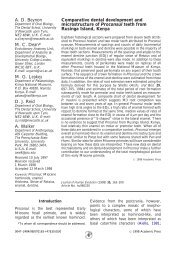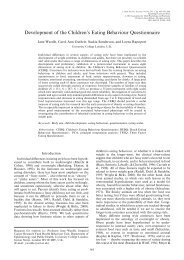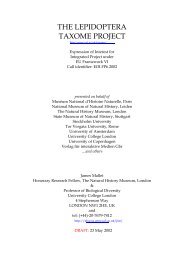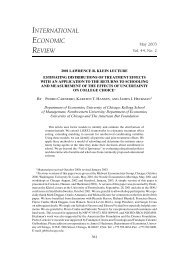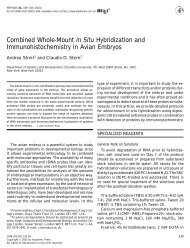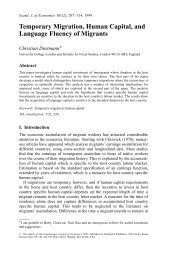The Ambitions of Contract as Promise Thirty Years On ... - UCL
The Ambitions of Contract as Promise Thirty Years On ... - UCL
The Ambitions of Contract as Promise Thirty Years On ... - UCL
Create successful ePaper yourself
Turn your PDF publications into a flip-book with our unique Google optimized e-Paper software.
<strong>Ambitions</strong> <strong>of</strong> <strong>Contract</strong> As <strong>Promise</strong> 24 August 2012 discussion draft: do not quote or reproduce without permission<br />
I.<br />
Recently I had occ<strong>as</strong>ion to reconsider not just the validity <strong>of</strong> particular<br />
arguments—for instance about consideration, the expectation me<strong>as</strong>ure <strong>of</strong><br />
damages, impossibility and frustration—I made over thirty years ago in <strong>Contract</strong><br />
<strong>as</strong> <strong>Promise</strong>, 1 but the value <strong>of</strong> the undertaking <strong>as</strong> a whole. 2 <strong>Contract</strong> <strong>as</strong> <strong>Promise</strong><br />
had <strong>as</strong> its overriding ambition connecting a number <strong>of</strong> salient doctrines <strong>of</strong> contract<br />
law to—indeed deriving them from—a central organizing moral and doctrinal<br />
principle: the promise principal. At the time in the late ’70s there were two views<br />
<strong>of</strong> the subject in the field: a traditional, doctrinal and not particularly theorized<br />
view that saw contract <strong>as</strong> the law’s way <strong>of</strong> allowing private parties to create<br />
and enforce the terms that would govern transactions and long-term<br />
undertakings, 3 and a burgeoning literature that saw contract law <strong>as</strong> a tool <strong>of</strong><br />
social control imposing obligations on parties growing in part, but only in part,<br />
from dealings into which they had voluntarily entered. Of course, it w<strong>as</strong> a<br />
commonplace that society gains from the exchange <strong>of</strong> goods and services—not<br />
only immediately <strong>as</strong> with barter, but over time <strong>as</strong> with the system <strong>of</strong> credit and the<br />
1 CHARLES FRIED, CONTRACT AS PROMISE: A THEORY OF CONTRACTUAL OBLIGATION (1981).<br />
2 <strong>The</strong> occ<strong>as</strong>ion w<strong>as</strong> an academic conference, “<strong>Contract</strong> <strong>as</strong> <strong>Promise</strong> at 30: <strong>The</strong> Future <strong>of</strong> <strong>Contract</strong> <strong>The</strong>ory.” <strong>The</strong><br />
papers have been published in volume 45, no. 3 <strong>of</strong> the SUFFOLK UNIVERSITY LAW REVIEW (2012). This<br />
essay h<strong>as</strong> grown out <strong>of</strong> my contribution to that volume. Charles Fried, <strong>Contract</strong> <strong>as</strong> <strong>Promise</strong> <strong>Thirty</strong> <strong>Years</strong> <strong>On</strong>, 45<br />
SUFFOLK U. L. REV. 961 (2012).<br />
3 <strong>The</strong> Restatement (Second) <strong>of</strong> <strong>Contract</strong>s, section 1 defines a contract <strong>as</strong> a “promise or a set <strong>of</strong> promises<br />
for the breach <strong>of</strong> which the law gives a remedy, or the performance <strong>of</strong> which the law in some way<br />
recognizes <strong>as</strong> a duty.”<br />
2




